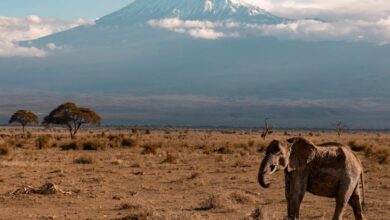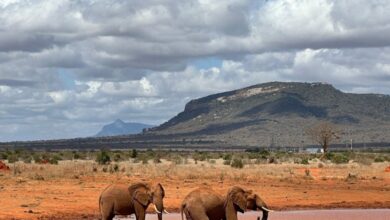How Can You Respect Wildlife during a Safari
Embarking on a safari is an exhilarating adventure that allows you to witness nature’s wonders up close. However, it also comes with a significant responsibility to protect the wildlife and their habitats. Respecting wildlife during a safari not only enhances your experience but also contributes to the preservation of these magnificent creatures for future generations. Understanding how to navigate this incredible environment with care is essential for both your safety and that of the animals.
Understanding Wildlife Behavior
Before setting out on your safari, take time to educate yourself about the wildlife you may encounter. Each species has its own behaviors, social structures, and reactions to human presence. For instance, elephants are known for their strong family bonds, while lions operate within a pride system. Recognizing these dynamics can help you appreciate the animals from a distance without disrupting their natural routines. Furthermore, understanding their behavior aids in ensuring your safety; for example, approaching a mother with her cubs can provoke defensive reactions.
Maintaining a Safe Distance
One of the most critical aspects of respecting wildlife is keeping an appropriate distance. Animals are often sensitive to human presence, and getting too close can stress them or provoke defensive behavior. Most safari guides will have rules about how far you should stay from the animals, and it’s vital to adhere to these guidelines. Use binoculars or a camera with a zoom lens to observe animals without intruding on their space. This approach not only protects the animals but also provides you with a more authentic experience.
Avoiding Feeding Wildlife
Feeding wild animals may seem like a kind gesture, but it can have detrimental effects. When animals begin to associate humans with food, it can alter their natural foraging behaviors, putting their survival at risk. Moreover, it can lead to aggressive behavior if they become reliant on human handouts. Always remember that wildlife should find their nourishment from their natural habitat, and your role is to observe, not to interfere.
Respecting the Environment
The environment is a crucial part of the safari experience, and respecting it goes hand-in-hand with respecting wildlife. Stay on designated paths and trails to minimize your impact on the ecosystem. Off-road driving can damage delicate vegetation and disturb animal habitats. Additionally, avoid littering; any trash left behind can harm wildlife that may ingest it or become entangled in it. Bring reusable containers for snacks and drinks, and ensure you leave only footprints behind.
Listening to Your Guide
Your safari guide is an invaluable resource, possessing knowledge about the wildlife and environment. They provide insights into how to interact respectfully with the surroundings. Always follow their instructions and guidelines, as they are trained to handle wildlife encounters safely and ethically. Their expertise can enhance your experience, allowing you to witness remarkable behaviors without compromising your safety or that of the animals.
Using Technology Responsibly
In today’s digital age, it’s tempting to capture every moment on your smartphone or camera. However, it’s essential to use technology responsibly. Flash photography can startle animals, causing stress or aggressive behavior. Instead, opt for natural light and be mindful of your surroundings while taking photos. If you’re participating in a guided safari, check with your guide regarding the use of drones or other devices, as these can disrupt wildlife and violate local regulations.
Embracing a Conservation Mindset
Finally, embrace a conservation mindset throughout your safari experience. Understand the importance of wildlife preservation and support sustainable tourism practices. Choose eco-friendly safari companies that prioritize conservation efforts and contribute to local communities. By doing so, you play a part in protecting wildlife and their habitats, ensuring that future generations can enjoy the same awe-inspiring experiences.
Reflecting on Your Safari Experience
After your safari adventure, take a moment to reflect on what you learned and experienced. Consider how your actions impact wildlife and what steps you can take to promote conservation in your daily life. Share your experiences with others to raise awareness about the importance of respecting wildlife. Your journey into the wild can inspire change and encourage more people to appreciate and protect the natural world. By nurturing a deep respect for wildlife, you can contribute to a legacy of conservation that lasts for generations.







